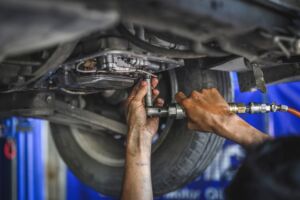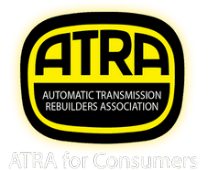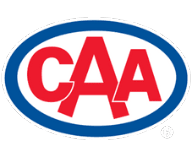Your vehicle’s differential may not get much attention—until something goes wrong. Whether you’re navigating icy Edmonton roads or heading down the highway, your differential plays a critical role in how your vehicle handles and performs. Ignoring the symptoms of a bad differential can lead to costly repairs, dangerous driving conditions, or even complete drivetrain failure.
In this post, we’ll cover everything you need to know about your differential, what the repair process looks like, and how you can prevent future issues.
What Is a Differential, and Why Does It Matter?
Before we look at potential issues and maintenance, you’ll need to know what your differential is. Your vehicle’s differential transfers power from the engine to your wheels while allowing them to rotate at different speeds, especially during turns. It’s essential for vehicle stability, traction, and overall performance.
There are several types of differentials, including open, limited-slip, and locking differentials. No matter which type your vehicle has, regular wear and tear or lack of maintenance can lead to symptoms of a bad differential.
5 Common Symptoms of a Bad Differential
If your differential is starting to fail, you’ll likely notice one or more of these symptoms:
1. Whining or Howling Noises
If you’re hearing unusual sounds like whining, humming, or grinding while you drive, it could be a sign that your differential needs attention. These noises often mean something isn’t working properly inside this essential component of your drivetrain.
The differential’s location depends on your vehicle type—front-wheel, rear-wheel, or all-wheel drive—but its job is always the same: to help your wheels turn at different speeds when cornering. When the internal bearings wear out or parts aren’t properly lubricated, noise is usually the first red flag.
A whining sound, in particular, can mean the gears inside are running dry due to low or leaking differential fluid. If left unchecked, this lack of lubrication can lead to serious (and costly) damage.
2. Vibrations While Driving
Excessive vibrations are a telltale symptom of a bad differential. If you begin to feel vibrations from the driveshaft, which worsen as you accelerate, this is one of the most common signs that you need to have your differential assessed or repaired.
A worn-out differential gear can also cause vibrations in your vehicle. This is when the gear is worn down and becomes distorted over time. When this occurs, it causes vibrations that can be felt under the seat or on the floorboard. If this happens, take your vehicle in as soon as possible so it can be repaired before it turns into a pricey issue.
3. Clunking or Grinding Sounds
When the differential wears down, the gears will start to grind. This goes along with the whining, as mentioned earlier. As you accelerate, the humming or grinding noise will get progressively louder. If caught and treated early enough, all you may need is a simple fluid change.
Gear grinding and humming noises can often be confused with transmission problems since the driveshaft connects the differential and transmission. If there is a problem with one, it is likely to influence or damage the other. The complex internal gear system usually lets you know when something is malfunctioning.
4. Premature or Uneven Tire Wear
Premature tire wear is usually a symptom of a bad differential in need of repair. When the differential gears don’t mesh properly, the tires rotate at different speeds, causing the interior of your tire to wear down faster than the perimeter.
Uneven wear is usually most visible and apparent on the front tires. This is because the front tires handle the brunt of the work when turning corners, often referred to as cornering.
If you notice uneven tire wear, it doesn’t always mean the differential is failing. It can also be caused by improper alignment, over- or under-inflated tires, or a worn suspension. The best way to diagnose it is by seeing a mechanic.
5. Poor Handling
A properly functioning differential ensures that your vehicle can corner the way it was intended. If you need a differential repair, it will be apparent in the cornering and handling. The vehicle may pull hard to one side or feel “loose” when turning corners. It can also cause acceleration to feel sluggish.
When a differential isn’t working properly, you will experience it when handling and controlling your vehicle. This needs to be checked as soon as possible since it can potentially lead to a loss of control and an accident.
Ignoring these symptoms of a bad differential can escalate the problem—and the repair costs.
What Happens During a Differential Repair?
At Dot Transmissions in Edmonton, one of our certified technicians will first inspect the differential for wear, leaks, and internal damage. The repair process may include:
- Draining and replacing differential fluid
- Replacing worn gears or bearings
- Resealing or replacing gaskets
- Rebuilding or replacing the entire differential (if severely damaged)
In some cases, especially if caught early, a fluid change and minor repair may be enough. But if the damage is extensive, a full rebuild or replacement may be required.
How to Prevent Differential Failure
Prevention is key when it comes to avoiding a bad differential. Here are a few expert-recommended tips:
- Check and change your differential fluid regularly (typically every 50,000 to 60,000 km)
- Address strange noises or handling issues right away
- Avoid aggressive driving, which puts extra strain on your drivetrain
- Have your vehicle inspected during routine maintenance
A trusted mechanic can spot early warning signs and help you avoid a major breakdown.
Need Differential Repair in Edmonton?
If you’re experiencing any symptoms of a bad differential, don’t wait! Driving with a damaged differential can lead to unsafe conditions and much more expensive repairs.
At Dot Transmissions, we specialize in differential repair and replacement for all vehicle types. Our experienced technicians will diagnose the issue and provide a transparent repair plan to get you safely back on the road.
Contact Dot Transmissions today to book your differential inspection or to learn more about how to keep your drivetrain in peak condition.






